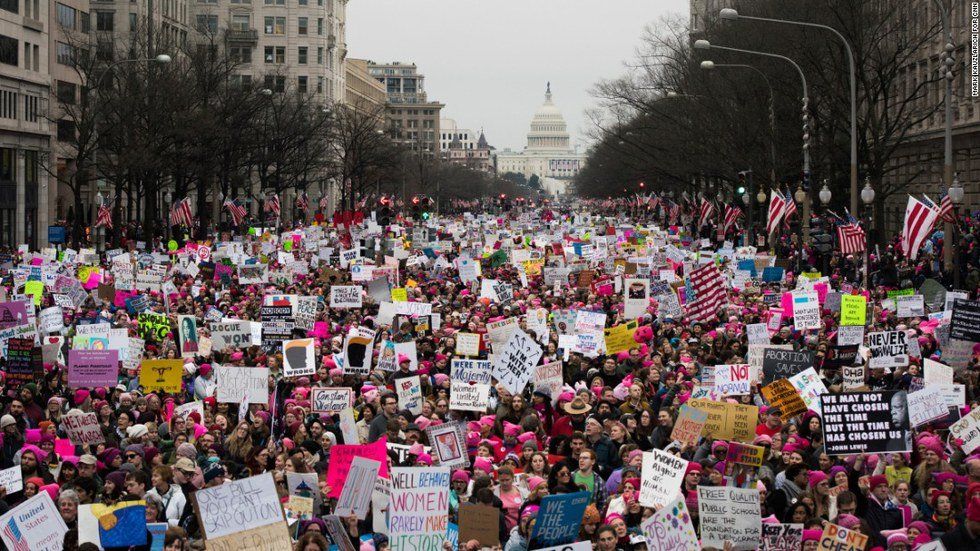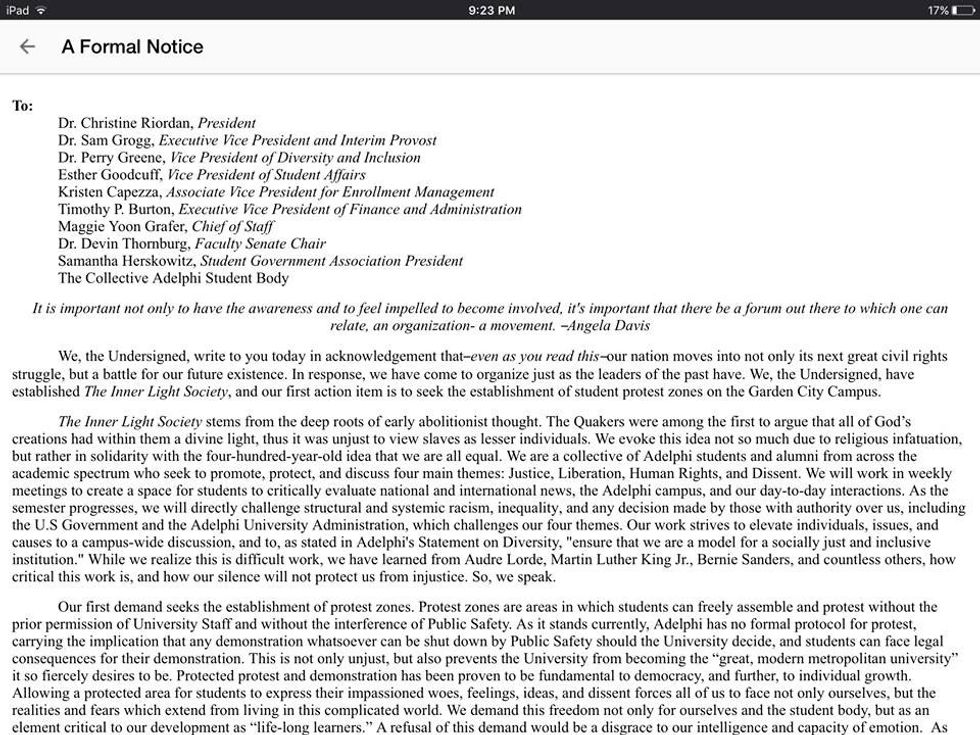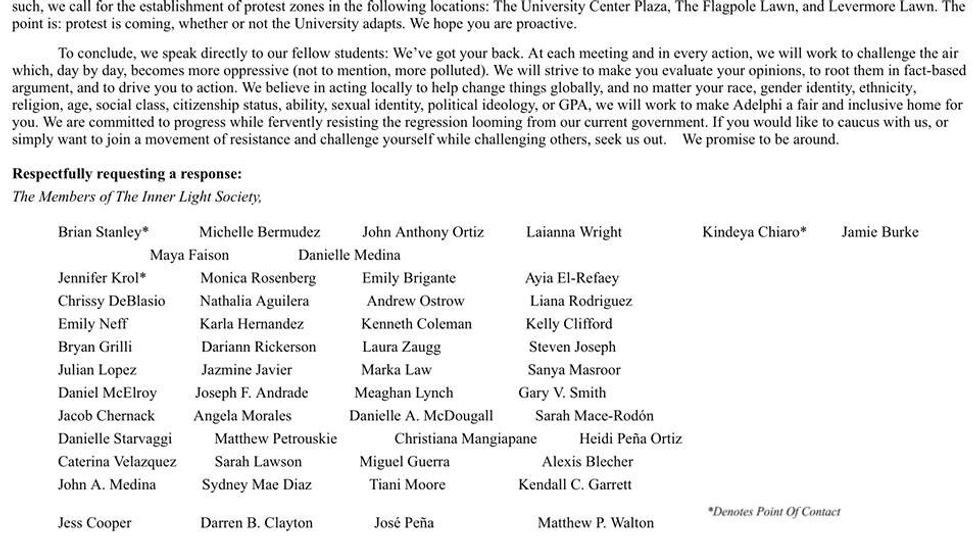Dear Inner Light Society,
This is in response to the first letter from your group. While I fully support and encourage the goal of the group to “promote, protect, and discuss four main themes: Justice, Liberation, Human Rights, and Dissent,” I am not so sure that your first demand for the establishment of protest zones will achieve the desired effect. I do not want to see a group filled with so many well-intentioned people committed to social action fail to achieve what it set out to do merely due to a genuine oversight.
Protests must call to attention your disapproval of the current circumstances and express your refusal to passively accept things as they are. This is most effectively done by disturbing the peace and causing a disruption of daily life. You are supposed to make people stop and listen to what it is you’re fighting for. Establishing protest zones make those whom you are addressing take you less seriously. In fact, they will feel comfortable knowing they can expect where things will be taking place. If students or administration disagree with your cause and don’t want to listen, they have the choice of doing so by simply avoiding those areas on campus. A protest is not supposed to invite attention. It’s supposed to demand it.
One of the tenets of your argument is that there is no protection for protesters on campus. Theoretically, protests could be shut down and students are vulnerable to legal consequences.
This is a legitimate concern, of course, but we must remember that if we want to make real, meaningful change we must not simply aim to pat each other on the back. Effective protests are rarely a comforting experience, and surely should never make the establishment feel complacent.
To accentuate this point, let’s take a look at our own history. The Great Railroad Strike of 1877, which occurred after the Baltimore & Ohio Railroad cut wages for the third time in a year, brought public attention on workers' wages and conditions. They did so through their mass upheaval, which led to the founding of an Employee Relief Association to provide death benefits, health care, and a worker pension plan.
The modern LGBTQ+ rights movement started with Marsha P. Johnson throwing a brick through the Stonewall Inn window.
Martin Luther King, Jr. was arrested 29 times during his fight for civil rights and racial justice.
Getting in trouble and facing consequences is an integral part of resistance. Actively ensuring that you do not get in trouble is minimizing the effects a protest can have. Additionally, cooperating with your authority figures within their constructed rules only appeases them. If the authority you are protesting approves of your actions, you are not doing it right.
If you don’t agree with the rules, change them. If there is no protocol and you want to create it, do not ensure the authority’s comfort in the process. The fact that we are made to go through public safety if we want to protest is precisely the issue. By asking for protest zones, you are simply adapting to the oppressive set of rules that are imposed on you. Instead, petition for policy change. Write letters to the president about the problems you see in the process one has to go through in order to protest.
Moreover, establishing protest zones might cause even more oppressive policies, like restricting protest to those zones only and not allowing demonstrations to be held anywhere else on campus. I can already hear it: “We gave you those places…what else could you possibly want? Isn’t that enough?”
They will sit back comfortably knowing that we have now essentially asked for them to limit our potential.
Advocacy for political change should not aim at the moral improvement of an individual. Feeling safe and good about ourselves and our movements, while important, should never be the aim of political groups. Political action is characterized by shaking things up, not passively submitting to what has led to resistance in the first place. Our politics must be concerned with the ordering of public affairs, which puts policy change at its core. We must work collectively towards this end, and think critically about what we want to protest and how we aim to do it. We should never act towards self-gratification.
As much as I hate saying it, I don’t think the establishment of protest zones will be beneficial for demonstrations nor make our social action more effective; rather the opposite: It is conformity in its purest form.























